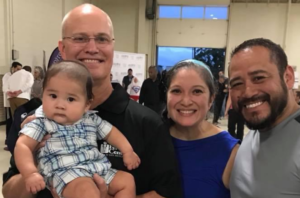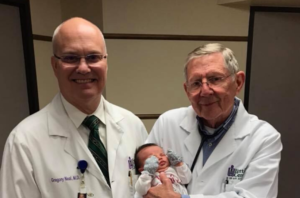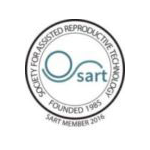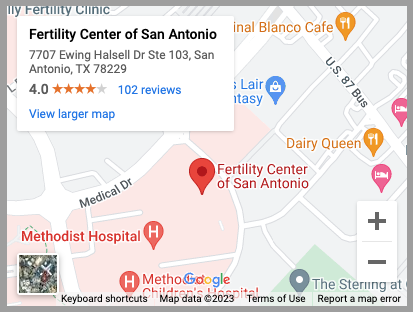Discover Your Path to Parenthood Today.
Fertility Preservation FAQ
With advances in fertility preservation and more options than ever before, we understand that many of our patients have numerous questions about the process, how it works, and what to expect. Fertility preservation treatments, such as egg freezing and sperm freezing, can be beneficial for patients with serious health conditions that could potentially harm their chances of conceiving later on in life. To better serve our patients at Fertility Center of San Antonio in San Antonio, TX, we have compiled a list of fertility preservation FAQ. If you do not find the answers you are looking for, our knowledgeable team would be happy to assist you during your consultation.

Our clinic offers a variety of fertility preservation treatments to meet our patients varying needs.
What is Fertility Preservation?
Fertility preservation involves procedures, such as egg freezing, embryo banking, and sperm freezing, used to protect and preserve your chance for future reproduction.
Why Choose Fertility Preservation?
Patients choose fertility preservation for a variety of reasons. Patients who have been diagnosed with cancer and require chemotherapy or radiation often choose to extract and freeze a number of eggs or sperm to enhance their chances for a family after treatment. Fertility preservation is also beneficial for young women desiring a family later on in life at a more convenient time.
What Types of Preservation Are Offered?
At Fertility Center of San Antonio, we provide a variety of fertility preservation methods, including ovarian tissue freezing, hormone replacement therapy, and testicular sperm extraction.
Patients who have been diagnosed with cancer and require chemotherapy and radiation often choose to extract and freeze a number of eggs or sperm to enhance their chances for a family after treatment.
Who is a Good Candidate for Egg or Sperm Freezing?
The best candidates for egg freezing or sperm freezing include:
- Patients diagnosed with a health condition that could result in infertility
- Patients who require chemotherapy, radiation, or certain medications that could negatively impact their fertility
- Patients committed to their career, but interested in having a family later on in life
- Patients who are single but wish to maintain optimal fertility
- Patients who practice extreme sports that could damage their groin, testes, or spine
- Patients who are a member of the military with a potential risk for damaging their fertility
During your consultation, we can perform a thorough evaluation to determine whether you qualify for this procedure.
How Does Cancer Treatment Impact Fertility?
Undergoing cancer treatment can impair blood flow within the reproductive and surrounding organs, inhibiting men from producing healthy sperm or women from conceiving or carrying a baby to full term. High levels of radiation and chemotherapy are used to kill cancer cells, but they can also damage and permanently destroy eggs and sperm, causing genetic abnormalities or infertility.
How Does the Process Work?
If you are interested in preserving your fertility, you can meet with one of our specialists to talk about your available options. Together, we can determine which fertility preservation method is best suited to your needs.
Women interested in egg freezing will begin medication and a series of injections to stimulate the ovaries for optimal egg retrieval. Patients will then undergo a minor surgical procedure to extract the eggs directly from the ovaries. Once the eggs have been successful retrieved, they will undergo a delicate cryopreservation process.
Men interested in sperm freezing will undergo a semen analysis to determine whether they have healthy sperm. If deemed viable, patients will be instructed to abstain from intercourse for two to three days before providing a sperm sample. Once collected, we can store the sperm in tank containing liquid nitrogen where it will be carefully monitored until a later date.
How Long Can Eggs or Sperm Remain Frozen?
If carefully frozen and monitored, most eggs and sperm can remain frozen for ten years or longer.
Schedule Your Appointment
Our dedicated team is committed to helping patients achieve their fertility goals. If you are interested in learning more about the fertility preservation methods we provide, contact our office online today or call us at (210) 692-0577 to schedule your consultation.











